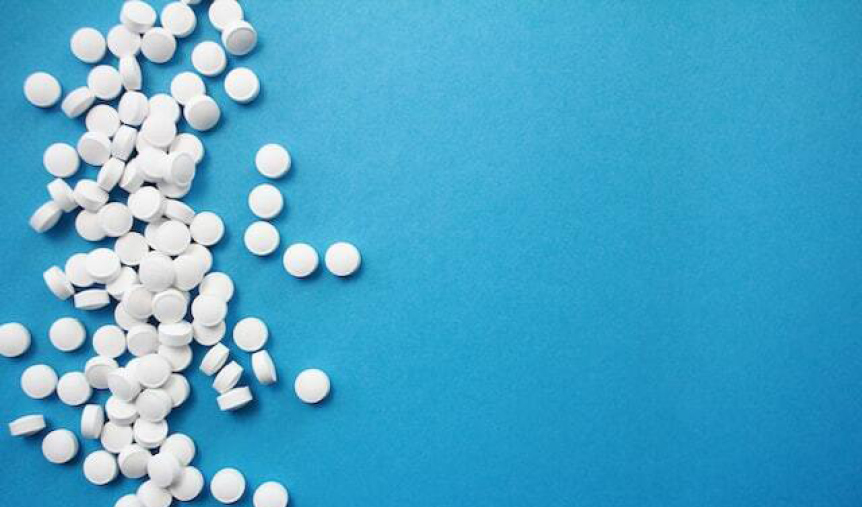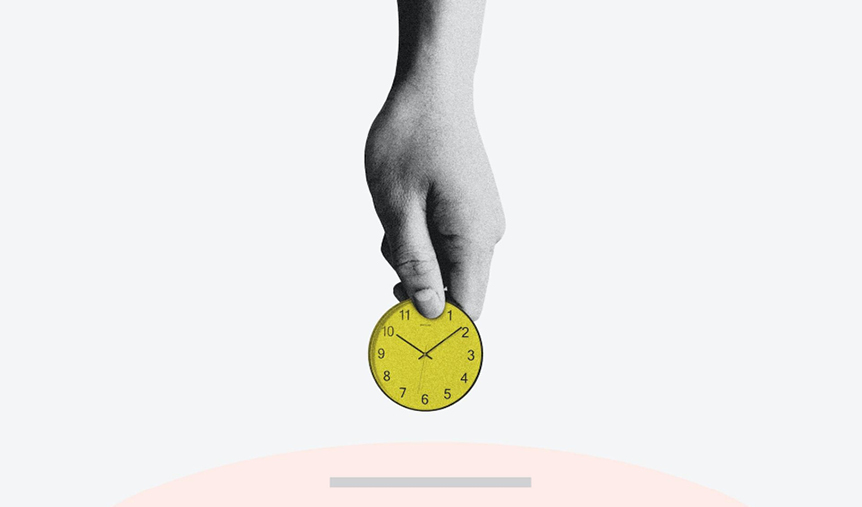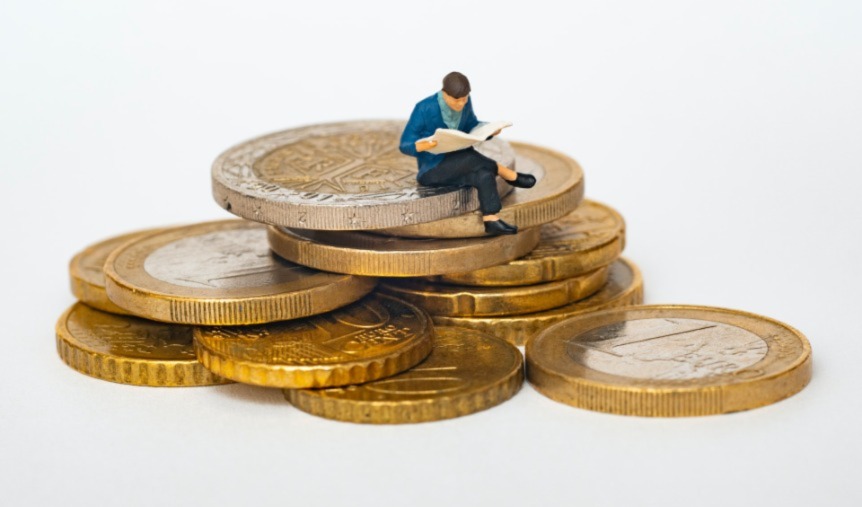According to the American Academy of Sleep Medicine (AASM), the term sleep hygiene refers to habits that improve our ability to fall asleep and stay asleep (AASM, 2020).
In this article, we summarize current evidence-based sleep hygiene advice. A number of the recommendations can be found in the image below.

The importance of routine for sleep
“Regularity is king” (Matt Walker, 2019)
If you develop only one habit based from this article, make it this one. Sleep improves with routine as our circadian rhythm craves consistency. But how exactly do you build a healthy sleep routine? By following these steps (Blume et al., 2019; Headspace, n.d.; Lindberg, 2020; Suni, 2022d):
- Prioritize Sleep. It can be tempting to skip sleep in favor of work, study, socializing or entertainment, but it’s critical to treat sleep as a priority.
- Establish a consistent sleep schedule that allows for adequate sleep (7 – 9 hours). Go to sleep at the same time each day, and wake up at the same time, even on weekends.
- Set a morning alarm and avoid hitting the snooze button, even if you haven’t slept well.
- Establish a relaxing routine 30 – 60 minutes before bed that helps calm your body and mind allowing you to transition from wakefulness to sleep. Ideally this routine should take place somewhere other than your bedroom.
- Get a dose of morning sunlight as soon after waking as possible. Ambient light from the environment is the most powerful “zeitgeber” (a German term that translates as “gives time”) reaching the SCN.
Habits can take time to develop (learn more about forming habits here). The secret is to start small, be consistent, and then build on your success gradually.
Sleep hygiene dos and don’ts
Don’t
- Consume caffeine (coffee, tea, soda) within 6 hours of bedtime (Drake et al., 2013). Caffeine blocks adenosine receptors making us less aware of our sleep hunger (Ribeiro & Sebastião, 2010). Caffeine also interferes with circadian melatonin rhythms which delays the onset of sleep when consumed close to bedtime (Burke et al., 2015). Not only that, but caffeine is a diuretic, meaning it stimulates urine production (Newman, 2020; Peters, 2021). Drinking caffeinated beverages late in the day makes it more likely you’ll need to use the bathroom during the night.
- Eat a large meal before bedtime. If you’re hungry at night, eat a light, healthy snack (AASM, 2020). Eating within 3 hours of bedtime has been associated with an increased chance of waking during the night and therefore having disrupted sleep (Chung et al., 2020). Lying down shortly after eating can also lead to heartburn (Peters, 2021). It’s best to avoid foods that can trigger indigestion like citrus fruits, spicy food, fatty or fried food (Headspace, n.d.). Optimal sleep begins with a stomach that is not too full or too empty. Large meals, especially those high in fat, have been linked to sleep disorders (St-Onge et al., 2016). For tips on how to support your mental health through better nutrition, read this post.
- Smoke cigarettes. Because nicotine is a stimulant, smoking close to bedtime can make it harder to fall asleep. Nicotine also adversely affects sleep architecture by reducing slow-wave sleep and increasing sleep disruptions (Patterson et al., 2017).
- Use smart phones and other electronic devices within 60 – 90 minutes of bedtime. Exposure to light at night, even at very low intensities, strongly inhibits melatonin secretion and can therefore disrupt circadian rhythms (Bedrosian & Nelson, 2017; Schmid et al., 2021). Electronic screens also emit blue light which reduces restorative slow wave sleep (Schmid et al., 2021). Screens and sleep are incompatible (Headspace, n.d.). If you sleep with your phone close by, switch it to a mode that will block light and sound during the night.
- Nap for more than 30 minutes or after late afternoon.
- Drink alcohol before bed.
Do
- Manage your stress. According to the Philips 2021 report, stress is the top barrier to a good night’s sleep around the world (Philips, 2021a). The same report indicates stress regarding finances is one of the top worries (read more about how you can improve your financial wellbeing here).
- Make your bed comfortable with a high-quality mattress, pillow, blankets and linens (Suni, 2022a).
- Dim the lights after dark (Headspace, n.d.). See the previous point about exposure to light at night.
- Make your bedroom quiet so that your sleep is not interrupted. You can try ear plugs, headphones or a white noise machine if it’s difficult to control noise (Suni, 2022a, 2022d).
- Keep your bedroom cool. Most doctors recommend keeping the thermostat set between 60 to 67 degrees Fahrenheit (15.6 to 19.4 degrees Celsius) for the most comfortable sleep. A bedroom that is too warm can make it difficult to fall asleep, and lead to less time spent in slow-wave and REM sleep (Pacheco, 2022). If your bedroom doesn’t have a thermostat, heating or air-conditioning, read this article from the Sleep Foundation for ideas on controlling the temperature.
- Exercise. Regular physical activity can improve sleep duration and quality (Dolezal et al., 2017). If you prefer exercising in the evening, there’s no need to modify your daily schedule as moderate intensity exercise up to an hour before bedtime does not adversely affect sleep (Stutz et al., 2019).
- See a doctor if you have good sleep hygiene but continue to have trouble sleeping. You may have a sleep disorder such as insomnia or sleep apnea, or a mental health condition that is affecting your sleep (Lindberg, 2020). Your doctor may recommend medication or a sleep study to diagnose the issue.
Sleep Myths, Tips & Takeaways
- Feeling well-rested requires adequate sleep duration, quality sleep and appropriate timing of sleep.
- The National Science Foundation recommends healthy adults get 7 – 9 hours of sleep per night.
- Global surveys show that the average amount of sleep on weeknights is less than these recommendations.
- It’s a myth that many high performers sleep less than 8 hours per night. It is rare to need fewer than the recommended hours.
- When we are sleep deprived, we may subjectively feel fine despite being cognitively impaired.
- Sleeping less than the recommended hours and more than the recommended hours both increase the risk of death.
- Sleep deprivation is associated with workplace and traffic accidents.
- We cannot train ourselves to need less sleep.
- We cannot catch up on sleep.
- Naps should be limited to less than 30 minutes.
- Sleep debt is linked to weight gain and metabolic syndrome.
- Sleep deprivation decreases our resilience.
- Only about 1 in 2 adults globally are satisfied with their sleep.
- Signs of sleep deprivation include feeling drowsy during the day, microsleeps, moodiness, needing more caffeine, craving junk food, feeling depressed, feeling crummy in the morning, battling breakouts, gaining weight, issues with focus and memory, eyes that are red, puffy, have dark circles or bags, falling asleep within 5 minutes of lying down, needing an alarm clock to wake up and sleeping more on days we don’t have to wake by a particular time.
- There are significant changes in our body and our brain during each of the sleep stages. Our brain does not shut down during sleep, although there are periods when it is less active.
- It’s normal to wake during the night, but many or extended disruptions reduce sleep quality. There are short- and long-term health consequences of poor quality sleep.
- If you are awake for more than 20 minutes during the night, get up and do something relaxing in dim light until you’re sleepy.
- Alcohol does not help us sleep.
- Snoozing does not lead to meaningful additional sleep. It can assist with creativity (here are some tools to boost your creativity) but is generally not recommended.
- There are many reasons why we sleep: energy restoration, memory consolidation, growth and repair, and waste removal.
- Sleep is vital for the optimal performance of our immune system.
- When we sleep matters. It is difficult to sleep out of sync with light and day due to our circadian rhythms.
- Sleep hygiene improves our ability to fall asleep and stay asleep.
References:
- (2020). Healthy Sleep Habits. Retrieved 5 April 2022 from https://sleepeducation.org/healthy-sleep/healthy-sleep-habits/
- Bedrosian, T. A., & Nelson, R. J. (2017). Timing of light exposure affects mood and brain circuits. Translational Psychiatry, 7(1), e1017-e1017. https://doi.org/10.1038/tp.2016.262
- Blume, C., Garbazza, C., & Spitschan, M. (2019). Effects of light on human circadian rhythms, sleep and mood. Somnologie : Schlafforschung und Schlafmedizin = Somnology : sleep research and sleep medicine, 23(3), 147-156. https://doi.org/10.1007/s11818-019-00215-x
- Burke, T. M., Markwald, R. R., McHill, A. W., Chinoy, E. D., Snider, J. A., Bessman, S. C., Jung, C. M., O’Neill, J. S., & Wright, K. P. (2015). Effects of caffeine on the human circadian clock in vivo and in vitro. Science Translational Medicine, 7(305), 305ra146-305ra146. https://doi.org/doi:10.1126/scitranslmed.aac5125
- Chung, N., Bin, Y. S., Cistulli, P., & Chow, C. (2020). Does the Proximity of Meals to Bedtime Influence the Sleep of Young Adults? A Cross-Sectional Survey of University Students. International Journal of Environmental Research and Public Health, 17, 2677. https://doi.org/10.3390/ijerph17082677
- Headspace, (n.d.). Sleep hygiene tips. Retrieved 5 April 2022 from https://www.headspace.com/sleep/sleep-hygiene
- Lindberg, S. (2020). What Is Sleep Hygiene? Verywell Mind. Retrieved 5 April 2022 from https://www.verywellmind.com/what-is-sleep-hygiene-5085887
- Newman, 2020
- Pacheco, D. (2022). The Best Temperature for Sleep. Sleep Foundation. Retrieved 31 March 2022 from https://www.sleepfoundation.org/bedroom-environment/best-temperature-for-sleep
- Patterson, F., Grandner, M. A., Malone, S. K., Rizzo, A., Davey, A., & Edwards, D. G. (2017). Sleep as a Target for Optimized Response to Smoking Cessation Treatment. Nicotine & Tobacco Research, 21(2), 139-148. https://doi.org/10.1093/ntr/ntx236
- Philips. (2021a). Seeking solutions: how COVID-19 changed sleep around the world P. G. S. Survey. https://www.usa.philips.com/c-dam/b2c/master/experience/smartsleep/world-sleep-day/2021/philips-world-sleep-day-2021-report.pdf
- Ribeiro, J. A., & Sebastião, A. M. (2010). Caffeine and adenosine. J Alzheimers Dis, 20 Suppl 1, S3-15. https://doi.org/10.3233/jad-2010-1379
- Schmid, S. R., Höhn, C., Bothe, K., Plamberger, C. P., Angerer, M., Pletzer, B., & Hoedlmoser, K. (2021). How Smart Is It to Go to Bed with the Phone? The Impact of Short-Wavelength Light and Affective States on Sleep and Circadian Rhythms. Clocks Sleep, 3(4), 558-580. https://doi.org/10.3390/clockssleep3040040
- St-Onge, M.-P., Mikic, A., & Pietrolungo, C. E. (2016). Effects of Diet on Sleep Quality. Advances in Nutrition, 7(5), 938-949. https://doi.org/10.3945/an.116.012336
- Suni, E. (2022d). Sleep Hygiene. Sleep Foundation. Retrieved 5 April 2022 from https://www.sleepfoundation.org/sleep-hygiene
- Walker, M. (2019). Sleep is your superpower. TED Talk. https://www.ted.com/talks/matt_walker_sleep_is_your_superpower



